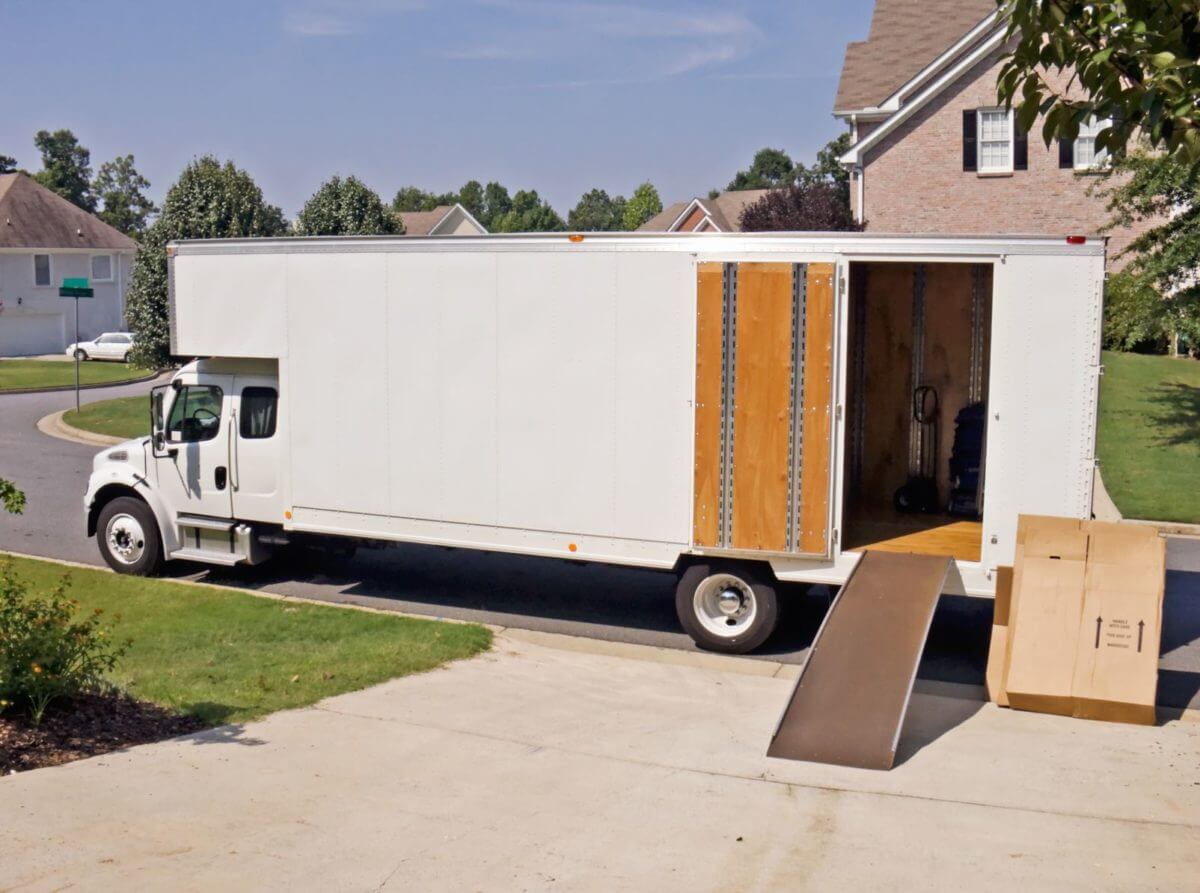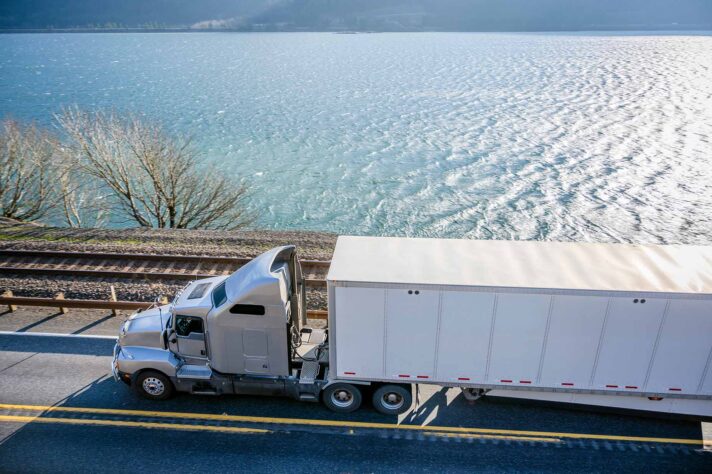After hearing so many awful stories about it, it’s not surprising that you are contemplating the possibility of being scammed. Fear and distrust might be the main reason why there’s a vague answer over our heads when asking is it better to move yourself or hire movers. Here’s how to tell if your company is a scam before signing a dotted line.
Moving Scams 101 – How to Avoid to Become Victim of Fraudulent Movers
With an average of 13,000 complaints, negative reviews, and reports on moving scams Better Business Bureau receives each year, it is a wonder most of the moves go smoothly. However, it may not be that unusual that the hunt for the right cross-country movers is such a murky process since most people hire them only a few times during their lives. Still, cross-country moving company scams are an ever-present threat.


One of The Most Common Moving Scams – The Name Game
A background check usually begins by looking through cross- country companies’ profiles on the web. Not doing it might probably be one of the common relocation mistakes people make. Even if you’re performing a last-minute move, take your time and do research. The most simple method for scammers to get away without repercussions is to change their names frequently. Luckily, having a short professional lifespan also means not being around long enough to have reviews, which immediately appears as a red flag.
It would help if you also search for other basic info, such as their local address, registration, and insurance information. To be even safer, look for several references within the past few months. From actual people, by the way, because there are many fake ones, written by companies’ employees or paid writers. Of course, recommendations for relocation companies from friends and family are always the best solution. Still, if they don’t have trusted ones, there is always a list of reliable relocation specialists from national movers associations.


Be Careful With Your Research
When moving cross country with your pet or relocating with kids, you really want to have everything taken care of so you can dedicate time to your family. But, the truth is that you will need to invest a certain amount of time to make sure you properly research every company that you come across, even recommendations. If you’re relocating for a job and your company takes care of everything, it’s best you still check out the company that will move your items.
Lacking Proper Licensing
If, while doing your research, you come across long-distance moving companies without a proper license, feel free to assume they won’t take adequate care of your belongings either. Bear in mind that every reputable mover has a US Department of Transportation number, so there’s a perfect chance you’re facing fraud if it’s not listed on their website.


Avoid Autopilot Mode On
No matter the reasons to move, you can never eliminate the anxiety about relocating out. Still, hiring a reliable mover surely soothes your mind, besides helping with the relocation process. One of the crucial requests is an on-site inspection because making a detailed household inventory list is the way to get an accurate relocation cost estimate. Cross-country movers that try to calculate the total price over the phone or via email, and second-guess the estimate, are the ones you should say goodbye to.
On-Site Inspection
Relocation specialists should visit your home and take a good look at all of your belongings. Potential problems which might occur on moving day – antiques and breakables, bulky furniture, or anything else requiring customized packing services as well as boxes and packing supplies – should be noted as well. They are supposed to get acquainted with all the doorways and narrow corridors, too, and deliver well-organized long-distance moving services. This is when you’ll get your actual quote.
If interested in transporting your car across the country, this is an excellent moment to ask the company representatives if there’s a car shipping service they offer. Every five-star cross-country mover will lead you through the whole relocation process and answer all your questions transparently concerning all their cross-country moving services. The same goes for the storage service, so don’t hesitate to find out all the details.
Do Movers Charge by Weight or Volume?
A reputable mover will give you an honest price, regardless of the metric, while a crooked one will find a way to overcharge you. No matter what affects the mover hourly rate, understanding how it works will help you recognize a scam.
There are a variety of charges depending on the type of your move. The most common pricing methods of legitimate movers are based on your inventory’s weight or volume. Ultimately, we can differentiate two main types: the ones that determine the cost based on your shipment’s weight and the others that use the volume, which is a bit less accurate than the first ones. The third and most transparent option is a quote based on the inventory list. In any case, and depending on your relocation budget, this is an excellent chance to talk to your relocation specialists and check if there is a chance for relocation expenses deduction if needed.


Hot Deals are Often Fraudulent
Even though many of us would rather naively accept the lower price without questioning it, there’s the learning experience preventing us from doing it. This being said, if a low-ball estimate seems too good to be true, then you’re most certainly confronted with a moving scam. The cheapest way to move out of state is not always the best one. Sure, moving during the winter, which is the best time of the year for relocating, is cheaper, but you need to be careful when looking for quotes. For example, if you are relocating to Richmond Virginia, from across the country to LA, and get a cheap estimate, it will probably be too good to be true.


Upfront Deposit
Whether it is about a considerable amount of money or an abnormally large one, asking for any deposit gives many possible scenarios to your move, all of them pretty bad. Rest assured, if this is the situation you’re in, you’re dealing with fraudsters and one of the most common frauds. Whatever you’ve been promised, never pay more than 20% of the final cost. Use this as a rule of thumb and avoid paying with cash. Use your credit card because credit card payments can be stopped or refunded to you.


Extra Fees Indicate Moving Company Scams
Long-distance moving quickly drains your budget, and you quickly find yourself wondering how to reduce cost when relocating. The last thing you want is the unpleasant surprise of being charged extra. This is where you have to be extremely cautious, not to overlook that only requested assistance is clearly stated in your bill of lading. Double-check it, or several times if necessary, but make sure there are no absurd charges or, even worse, ridiculous services.


Holding Goods Hostage
While there are many types of relocation frauds, this one’s a classic. Federal law requires interstate relocation companies to release your belongings when you pay 100% of the charges in a binding estimate or 110% of a non-binding one where additional weight or help have caused the final price to increase. Still, deceptive movers are far from afraid of driving away with your family heirloom unless you pay them the price they set themselves. If you are one of the millions packing and relocating and want to avoid such a nightmarish scenario, take the precautions mentioned above.
Packing
Our expert moving teams are trained to ensure the safety of your personal belongings.
Moving Insurance
Cross Country Moving Company is the most trusted name in the relocation industry in the country.

Auto Transport
Cross Country Moving Company is the most trusted name in auto industry in the country.
Being Guaranteed Is Never a Guarantee
One of two kinds of estimates are required by federal law:
- A non-binding one could cost you more than expected. This is a quote based on the weight of customer’s belongings, and, as the term itself says, it’s not set in stone. The possibility for the quote to change is not so small.
- A binding one is a guaranteed cost for the approximate weight of the customer’s belongings.
These quotes also include mandatory insurance, so they will have to estimate the value of household goods. However, it is a basic one, and it usually applies to items that are not of great value, but still, you should not forget to create a photo inventory of everything you own.
To hear more about why it is important to be extremely careful when signing paperwork from your mover, check out the video below.
Protect Yourself From Moving Fraud
There are many responsibilities on the house owners list, especially if you’re relocating to another state alone. Getting safely to the new home is indeed one of the priorities. Since we live in a world full of data, their availability can often be helpful or, even better, a safety measure. To avoid bad outcomes, before choosing a long-distance moving company, do thorough online research on the ones you’re interested in. FMCSA’s database provides not only registration information but customer reviews and complaints history, as well. Another great way you can protect yourself is to search for a certified mover on the ATA’s website, making sure they meet ethical and professional standards. Also, checking their profile on the Better Business Bureau’s website can only do you good.
Rights and Responsibilities Booklet
It is well known that knowledge gives us the ability to make smart decisions a bit more confidently. If you want to know how to deal with relocation stress better, we recommend not skipping this one. For interstate moves, federal law requires that every company provide the booklet called “Your Rights and Responsibilities When You Move.” This is a copy of the interstate relocation industry’s official rule book, so be sure to read the information carefully.
The Blank Contract
There are so many do’s and don’ts regarding moving fraud, but this one is rather common sense than a scam. No matter how friendly or helpful your mover is, get everything in writing and don’t ever sign a blank contract. If you expect all your stuff to arrive at your new location, read the contract from top to bottom. Don’t be lazy. Make sure everything is listed.
Document Your Home and Keep Away From Scams
How to unpack after a move if your household goods are not with you? This brings us to the next big point – how to organize your move. Take note of everything so that you can have before-and-after proof. It is the only possible way to get away from any potential unpleasant situations. You should always check if there’s any problem or a difference on the mover’s copy of the inventory before signing it. It’s a lot easier for them to deny it if you don’t have any proof or if they didn’t see the damage before leaving your home. Remember that your chosen shippers will deny liability if you fail to report any missing or damaged items immediately upon delivery. Adjusting to a new place after relocating will be much easier if you protect what you love and have it all with you.


What to Do If You Have Been Scammed By a Moving Company?
If you wondered how to move efficiently despite unforeseen circumstances, note that minor inconveniences are expected when making such significant transitions. It is not the end of the world if you find yourself experiencing them. However, when serious problems arise, and the company or your stuff can’t be reached, you have to decide what would be the next best step for you:
- Take your issue online and write a review,
- File a complaint,
- Get in touch with different organizations that could help you: BBB, DOT, AMSA, and FMCSA,
- Consider taking your case to a small claims court for financial reimbursement.


Finding Honest Operators is Primary Goal
Having too many choices sometimes decreases our ability to recognize the right one. With so many of them around, how to know who is the best moving company? This one might be difficult to answer, but with an extensive search, you’ll get there. After all, let your primary concern be dealing with an honest mover since you’re paying someone you don’t know to drive away with everything you own.
FAQ
What Are Some Common Moving Scams to Look Out For?
Moving scams can take many forms but some of the most common ones include bait and switch, hostage load, non-binding estimate and false reviews.
How Can I Protect Myself From Moving Scams?
First and foremost, look up the cross-country moving company’s reputation and reviews online. Contact mutliple firms and get estimates. Verify that the long-distance moving company is insured, registered and licensed with the Federal Motor Carrier Safety Administration (FMCSA).
What Are Some Warning Signs of a Moving Scam?
Warning signs are when the long-distance moving company doesn’t have a physical address or a phone number. Another red flag is when they seek payment or a large deposit upfront and they refuse to answer your questions.
How Can I Verify the Legitimacy of a Moving Company?
Check the FMCSA’s database. This will tell you if the company is licensed and insured. Next, check the Better Business Bureau. This will give you information about the company’s reputation and any complaints filed against them. Lastly check online reviews from people who have moved cross country with them.
What Should I Do if a Moving Company Asks for a Large Deposit or Payment Upfront?
If a cross-country moving company asks for a large deposit or payment upfront, it is a red flag. Instead, you should negotiate a small deposit or payment, and pay the majority of the fee upon delivery of your belongings.
How Can I Check a Moving Company’s Reviews and Ratings?
You can check a moving company’s reviews and ratings on websites such as Yelp, Google, and the Better Business Bureau.
What Should I Do if a Moving Company Doesn’t Have a Physical Address or Phone Number?
If a long-distance moving company doesn’t have a physical address or phone number, it is a major red flag, and you should avoid them altogether.
How Can I Avoid Hidden Fees and Charges From a Moving Company?
To avoid hidden fees and charges, make sure to read the fine print of the contract and ask the cross-country moving company to clarify any unclear language.
What Should I Do if a Moving Company Changes the Terms of the Contract or Estimate?
If a cross-country moving company changes the terms of the contract or estimate, it is a warning sign, and you should cancel the move and find a different company.
How Can I Ensure That My Belongings Are Protected During the Move?
To ensure that your belongings are protected during the move, you should pack your belongings carefully. Label your boxes clearly and take pictures of valuables.
What Should I Do if a Moving Company Doesn’t Show Up on the Scheduled Move Date?
If along-distance moving company doesn’t show up on the scheduled move date, you should try to contact them first to find out what’s going on. If you’re unable to get in touch with them or if they don’t provide a satisfactory explanation, you should cancel the move and look for another cross-country moving company.
How Can I File a Complaint or Report a Moving Scam?
If you believe you have been the victim of a moving scam, you can file a complaint with the FMCSA or the Better Business Bureau. You can also file a complaint with your state’s attorney general’s office or consumer protection agency.
What Should I Do if a Moving Company Damages or Loses My Belongings?
If a cross-country moving company damages or loses your belongings, you should document the damage or loss with pictures and/or video. Then, file a claim with the moving company’s insurance company.
How Can I Choose a Trustworthy and Reliable Moving Company?
Do your research and check reviews and ratings online. Get multiple estimates and compare them. Read the fine print of the contract and make sure you understand all the terms and conditions. Ask for references and contact them to get a sense of the company’s reputation and reliability.
How Can I Stay Informed About the Latest Moving Scams and Frauds?
Stay up to date on news and reports related to moving scams and frauds. Subscribe to newsletters and alerts from consumer protection agencies and watchdog groups. Follow only reputable long-distance moving companies and consumer advocates on social media.







